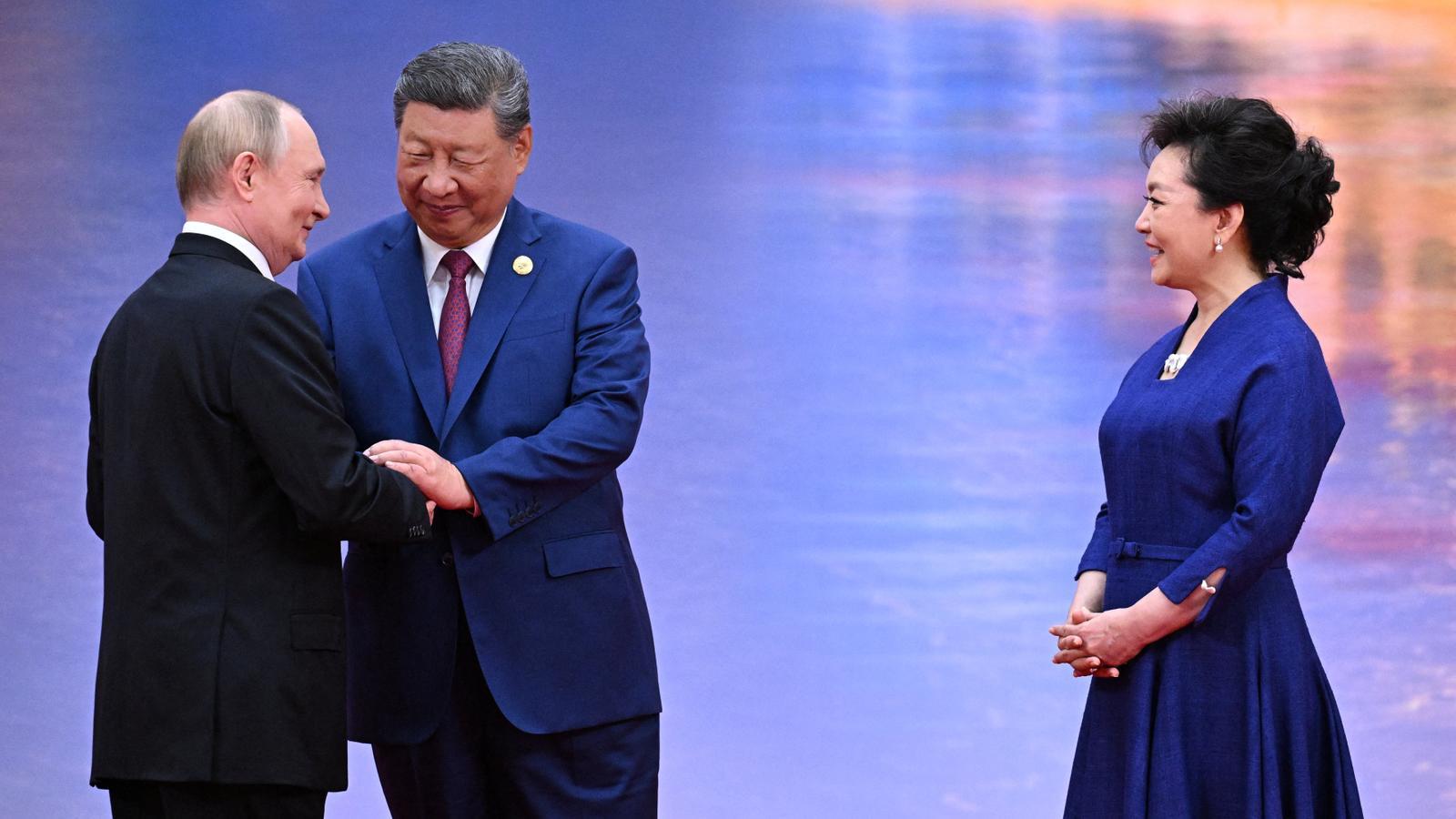Xi embraces Modi and protects Putin: "This will be the century of Asia"
Chinese and Indian leaders pledge to be partners, not rivals, on the first day of the SCO talks.


BeijingChinese President Xi Jinping defended the need to safeguard regional peace and stability during the welcome dinner offered to the twenty world leaders participating in the 25th Shanghai Cooperation Organization (SCO) summit, which began this Sunday. The city of Tianjin, considered Beijing's port, has rolled out the red carpet and extensive security measures to host this two-day forum that ends on Monday. The spotlight will focus, in particular, on three protagonists: Vladimir Putin, Xi Jinping and Narendra Modi. The meeting comes at a key moment: Russia is seeking new markets for its oil and gas, India is trying to avoid retaliation from the United States and China wants to consolidate itself as an alternative to Western leadership while keeping a close eye on the situation. Donald Trump's erratic movements, changes of heart, and threats.
The highlight of the first day, however, was the rapprochement between China and India, which pledged to be partners, not rivals. "It is vital that the Chinese dragon and the Indian elephant unite," Xi Jinping assured Prime Minister Narendra Modi during their meeting. Xi stressed the importance of the two most populous countries in the world, and key players in the Global South, not being at odds. For his part, Modi expressed his conviction that cooperation can make the 21st century the "century of Asia" and that both countries must seek strategic autonomy.
Xi Jinping displays his power as a counterweight to the United States. He establishes himself as the leader of the Global South and calls for a new world order. The SCO meeting is just a foretaste of the grand military parade organized to celebrate the 80th anniversary of Japan's surrender and the end of World War II in Asia. These festivities will be joined by another provocative guest from the West, North Korean leader Kim Jong-un.
SCO summits typically discuss security or cooperation issues that do not extend beyond the regional sphere of interest. Geostrategically, the meeting, led by Xi Jinping, currently symbolizes a united front of countries against the Western order. Putin's presence at both the SCO summit and the parade on the 3rd is a demonstration of this. the close and good relations he maintains with Xi Jinping.
The Russian president becomes China's guest of honor at these events, demonstrating that the "limitless" alliance between the two countries signed before the invasion of Ukraine remains in very good health. The Russian and Chinese press have highlighted the importance of this trip and its unprecedentedly long duration by Putin's standards. Beijing remains Moscow's main trading partner. Following the sanctions imposed by the West, China became the main buyer of oil and coal. In 2024, bilateral trade amounted to a record $245 billion, although it registered a year-on-year decline of 8.1% from January to July of this year. Russia wants assurances that Beijing will continue to support its economy. Putin arrives in China after meeting with Trump in Alaska. Beijing and Moscow are expected to agree on a joint position on ending the war.
Since the invasion of UkraineMoscow has been progressively losing European customers and turning to Asia. The result is an energy triangle in which Beijing and New Delhi have purchased more than half of Russian exports since 2023. In this regard, one of his protégés, Belarusian President Aleksandr Lukashenko, met with Xi Jinping this Sunday. Both reaffirmed their status as "firm partners."
Modi balances and seeks markets
For his part, Modi arrives in China after visiting Japan. The 50% tariffs imposed by Donald Trump on Russian oil purchases are forcing India to seek other markets. The meeting with Xi Jinping comes at a time of thawing and rebuilding relations between the two Asian powers following the 2020 Himalayan border clash. Within the framework of the SCO, Narendra Modi is expected to push for a condemnation of "cross-border terrorism," a clear summit reference.
By attending this forum, Modi is forced to balance diplomacy and defend what he has called "strategic autonomy." It should not be forgotten that India is a member of the Quad alliance (the United States, India, Australia, and Japan), an organization created in 2007 to counter China's power in the Asia-Pacific region. However, due to Trump's aggressive policies, India is joining its neighbors in fighting the trade war.
However, Modi is not expected to endorse Russia's invasion of Ukraine or support Beijing's claims to the South China Sea.
Half of the world's population
The Shanghai Cooperation Organization was established in 2001 as a Eurasian security forum with six participating countries: China, Russia, Kazakhstan, Kyrgyzstan, Tajikistan, and Uzbekistan. The group has since expanded to ten, including Iran, Pakistan, India, and Belarus. There are also 14 non-member partners participating in the dialogue and two observer states. In total, the SCO summit brings together almost half of the global population and accounts for 23.5% of global GDP. And on the horizon, the desire to become a counterpoint to NATO looms.
Although its goal is to promote security and harmony among its members, it lacks the tools to prevent armed clashes. This year, India and Pakistan engaged in fighting in the Kashmir region. And the SCO's position on Israel, for example, also creates friction: India has refused to condemn the Israeli attack on Iran.
